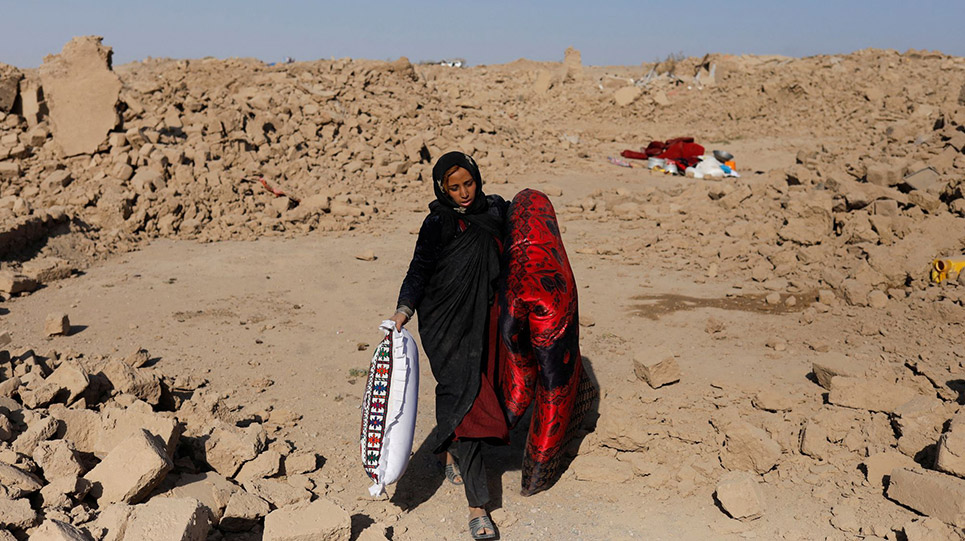
Weeks on from one of the most destructive earthquakes in Afghanistan's history, thousands of people in Herat are living in tents next to what remains of their homes.
The 6.3-magnitude quake hit on 11 October, destroying entire villages and leaving more than 2,400 people dead.
Women and children have been disproportionately affected by the disaster, the UN has said, and make up more than 90% of the dead.
For Afghanistan, one of the poorest countries in the world, the road to recovery will be tough and there's something which has made the situation even worse - the Taliban regime's oppression of women.
Living amid the rubble of Herat, one Afghan woman, Maryam (writing under a pseudonym), sheds light on why so many women have died and gives her eyewitness account of what's happening…
It was a Saturday morning when the first earthquake hit in Herat. Like many of my country's women, I was at home preparing lunch when the whole building started to shake.
It was horrific and I didn't have time to think about the two things every Afghan woman needs when she leaves the house.
Under the Taliban regime, we are banned from being in public without a burqa and a mahram (a male chaperone). But as the buildings shook around me, I just about managed to leave the house with my phone in my hand.
As I fled to safety, I saw countless women doing the same - running through the streets without even a hijab, or a chaperone. This is a sin, according to the Taliban, and a breach of law.
Since the first earthquake, I've heard reports of women being beaten because of their decision to do this. The misogyny of the regime doesn't even stop in emergency situations.
I've visited villages in the Zinda Jan District to try to help with aid efforts. There, I learned many women died in fear. They were afraid of running for their lives and disobeying the male members of their family.
These women were imprisoned in their home by Taliban rules and now they're dead under the rubble of them.
I saw one middle-aged woman stood at the centre of a destroyed house. She stared straight in front as rescue workers set up a tent, and I asked who it was for.
"The aid is for my sister," she said. "She's in hospital and she's lost all of her children. None of this can help bring them back."
As tears flowed, she asked me: "For what pain should I cry?"



